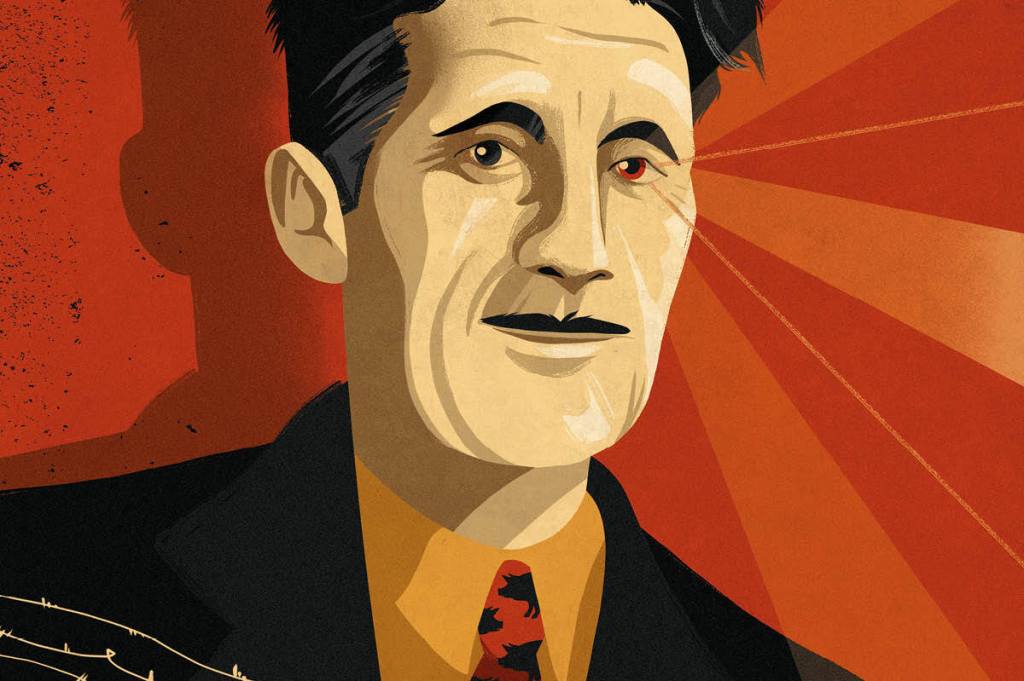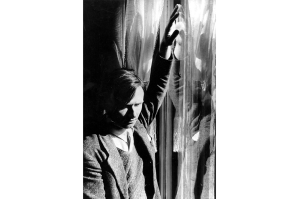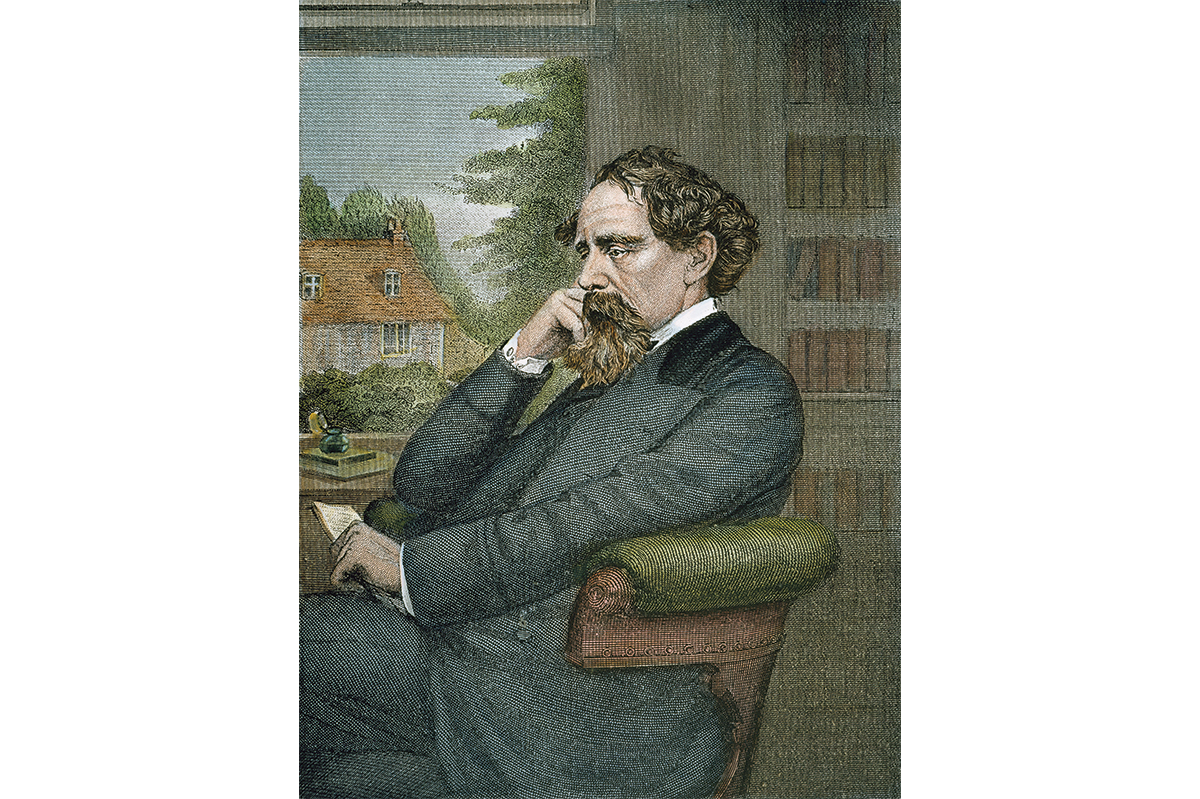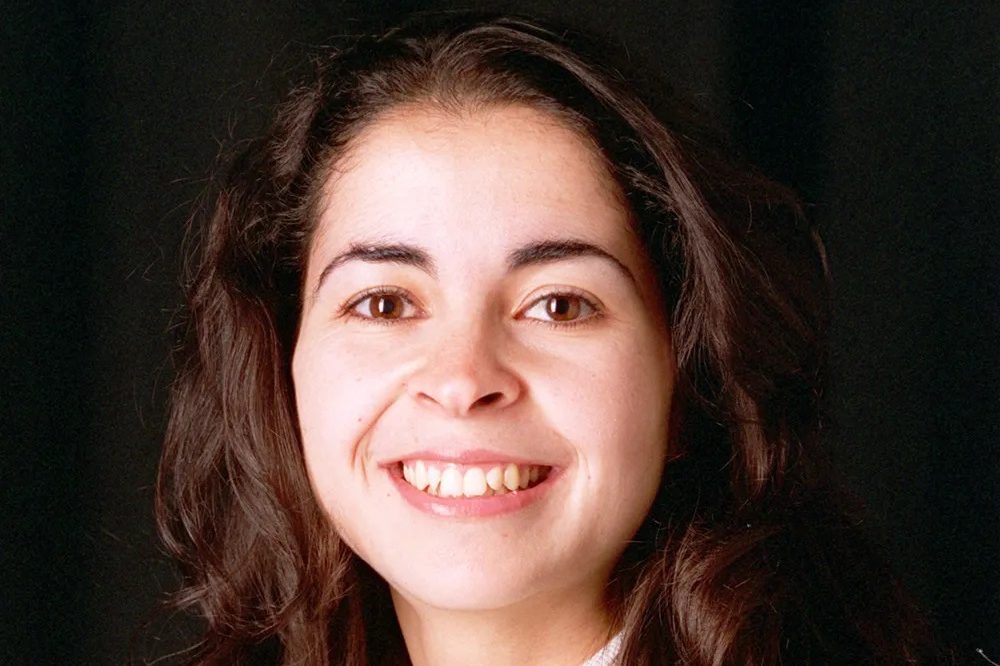Outside Broadcasting House, the BBC’s main center in London, is an imposing, eight-foot-high statue of a man. He leans over slightly, as if to accost passersby, and holds a cigarette. A sign behind him declares, “If liberty means anything at all, it means the right to tell people what they do not want to hear.” The man is the author and critic George Orwell and the statue was intended as a permanent commemoration of his writings and values, as well as his short-lived stint at the BBC during World War Two. Unfortunate, perhaps, that when he departed the Corporation he dismissed his time there as a talks producer as “two wasted years,” and that his attitude toward the increasingly tortuous attempts of the organization to remain on the good side of the British government and taxpayers alike would undoubtedly have been contempt.
Yet since his death in 1950, at the startlingly young age of forty-six — even Virginia Woolf made it to fifty-nine — Orwell has been canonized by generation after generation of admirers, fired up by his writing, ever-mutable political stances and towering reputation. His best-known novel, Nineteen Eighty-Four, has sold over 35 million copies since it was first published in June 1949, and has given the English language countless words and phrases that have passed into everyday usage: “Big Brother,” “double-think,” “Thought Police” and many more. When Donald Trump was elected president, the book — then still in copyright, but only just — saw its sales soar in anticipation of what was expected to be a totalitarian regime: had Orwell seen the rise of the Donald, there can be little doubt that he would have despised him, although it’s doubtful that he would have felt a great deal warmer about Biden, either.
In the course of his brief but eventful life, which included a stint in Burma as a colonial administrator, his education at the iconic British school Eton, the creation of six novels, three works of nonfiction reportage and countless essays, service as a volunteer on the side of the anti-fascist communist party POUM in the Spanish Civil War and, for much of his existence, the appallingly bad health that eventually killed him, Orwell was a malcontent.
In Orwell: The New Life, the critic and biographer D.J. Taylor painstakingly notes the myriad occasions that the writer rubbished his own work. When he submitted his first novel Burmese Days to his literary agent, he pronounced himself “very dissatisfied” with it; even up until the end of his life, he was informing friends that Nineteen Eighty-Four was “an awful book really.” “I am not pleased with it,” he remarked, “but I think it is a good idea.” Little wonder that a reader’s report of Burmese Days for the publisher observed “I know nothing of Orwell, but it is perfectly clear that he has been through hell, and that he is probably still there.”
Like the poet Philip Larkin — who met Orwell while a student at Oxford, and pronounced him “very nice, though not quite [my father’s] political line” — the man formerly known as Eric Arthur Blair was the less deceived about what he had seen. Taylor writes early on in The New Life that his subject “is someone who has quarried his way down into the heart of the human condition,” and has not much liked what he has found there.
Although he is an unabashed admirer of Orwell, borrowing Gerard Manley Hopkins’s words on Oxford to call him “my park, my pleasaunce,” and confesses to a half-century of near obsession, saying “to read and write about him is one of the greatest satisfactions I know,” Taylor is faced with the incontrovertible problem that his subject is unusually difficult to comprehend. V.S. Pritchett said of Orwell that “it was impossible to know such a straying and contradictory man well,” and another friend said of him, later in life, that he was “basically sad and lonely,” a state of affairs much worsened by the premature death of his similarly sickly first wife, Eileen O’Shaughnessy, victim of what Taylor implies was a botched hysterectomy at thirty-nine.
Taylor has already written an excellent, comprehensive biography of Orwell (The Life, 2003), and so this new book, which is billed as an entirely fresh look at the author (hence its subtitle) rather than a revised edition, sets itself high standards from the outset. Taylor ably justifies its existence with that old biographers’ standby, “a vast amount of new material,” and undoubtedly many of the letters and documents that have come to light over the past two decades are revelatory, especially when it comes to his miserable relationships with women.
From early adulthood, Orwell appeared to have an unfortunate penchant to, in his biographer’s phrase, “[assume] a complicity that did not actually exist,” and so behaved as if female friends and acquaintances were reciprocating feelings of passion on his part.
This resumed with particular poignancy after O’Shaughnessy’s death as Orwell, ailing with the tuberculosis that would eventually kill him, attempted to find a wife who would both manage his estate and look after his young son Richard: his eventual choice, the much younger Horizon employee Sonia Brownell, eventually ended her life destitute after somehow losing millions to an unscrupulous or incompetent accountant’s investments.
The motifs of Orwell’s life, and this biography, are almost elemental: money, or the lack of it; politics, left-leaning but with surprising variants (he assumed he would be a pacifist during World War Two, but instead became a committed anti-fascist upon the outbreak of war); a deep appreciation for male friendship, coupled with a consistent loathing of homosexuality and “Nancy boys”; a love of literature and a hatred of cant; and, ultimately, a shrugging fatalism best expressed when he remarked to one friend, shortly before the end of his life, “I’ve made all this money and now I’m going to die.”
On this evidence, he is an easy man to admire and sympathize with, but a hard one to like. Taylor shies away from any suggestion that Orwell was on the autism spectrum, but judging by many of the actions depicted in this necessarily lengthy but never self-indulgent book, he suffered from at least a moderate form of Asperger syndrome, which might explain his often uncomprehendingly forthright attitude towards his fellow writers. He considered it quite normal, for instance, to expect the subject of a bad review he’d written to sit down for lunch or dinner with him, unoffended. Yet there is a near-unbearable sadness to the final chapters, as Taylor depicts Orwell’s failing health and his obvious love of Richard, even as he finally achieved the literary renown and respect that he had always deserved.
Or “nearly always,” anyway. Taylor is sharp on the way in which Orwell’s pre-Animal Farm novels are interesting but flawed insights into his psyche rather than successful works of fiction, and two of them — A Clergyman’s Daughter and Keep the Aspidistra Flying — were omitted from his collected works until long after his death. Orwell’s account of his service in the Spanish Civil War in Homage to Catalonia was commercially unsuccessful in his lifetime, failing to sell out its modest first edition, and much of his nonfiction was produced to order as journalism, written at prodigious speed.
And, inevitably, as the literary world changes, Orwell is regarded with greater suspicion than he was two decades ago. Taylor acknowledges that “it is perfectly possible, and sometimes desirable, to inspect him through the prism of colonialism, or the #MeToo movement, or even… Black Lives Matter,” and that “Orwell was a man of his time,” but he also remarks, of the feminist critic Beatrix Campbell, that her trying to complain about sexual bias in The Road to Wigan Pier “was like watching a small child trying to bring down an elephant with a pea-shooter.”
In his will, Orwell asked that no biography of him be written, something that was later overturned for Bernard Crick’s 1980 George Orwell: A Life. Had this been adhered to, we would have been deprived of some very fine writing that would hopefully have pleased its subject. In both his earlier book and now, Taylor proves himself an insightful and sympathetic successor to Crick, treating a complex and contradictory man with, by turns, the delicacy and robustness that he deserves. He can’t do much to make the Spanish Civil War sections comprehensible, but that’s the fault of the ludicrously complex political situation of the time, rather than his (or Orwell’s), and his brief interpolated essays on aspects of Orwell’s character (imported from the earlier book) give shading and nuance to what was often a grim life.
Yet it’s hard not to warm to a man who once remarked that “when I lie in my bath in the morning, which is the best part of the day, I think of tortures for my enemies.” Big Brother would have approved, you can’t help but think.
This article was originally published in The Spectator’s July 2023 World edition.

























